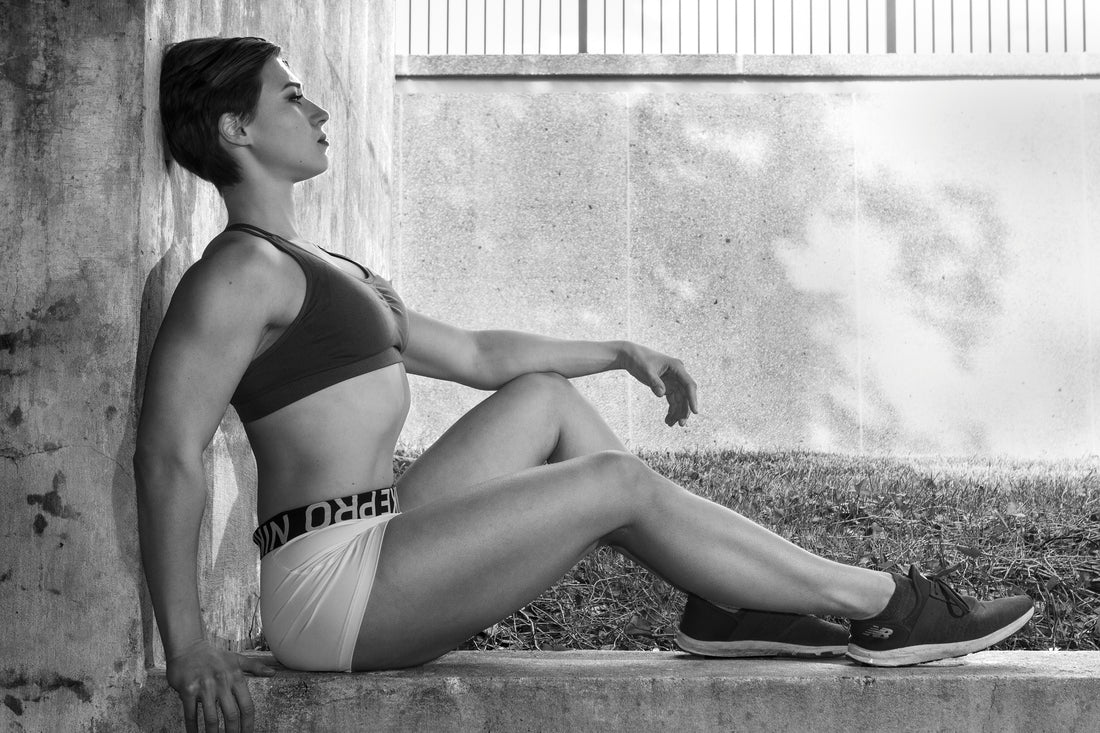
The Power of Powerlifting: Empowering Women Through Strength Training
Share
In the realm of fitness, powerlifting has often been associated with cis gender men covered in chalk, blood and sweat, with red faces and bulging eyes on the lifting platform. While those types of folks do exist in the sport, the majority of powerlifters look like themselves, just more focused. As of late, there has been an influx of women entering the sport. Awesome! Powerlifting, like any proper strength training, provides a myriad of benefits for folks, regardless of their genitalia and how they identify.
Powerlifting focuses on three main lifts — squat, bench press, and deadlift — and offers an effective approach to achieving long-term weight loss, a more desirable physique, healthier bones, and enhanced self-esteem. One of my key focuses as a vegan powerlifter is to bring more vegans and women into strength training regardless whether they decide to compete or not.
Consistent Long-Term Weight Loss
Increased Metabolism
Powerlifting is a high-intensity sport that builds strength, thus building muscle mass. More muscle mass translates to a higher resting metabolic rate (RMR). This means you burn more calories even when at rest and can significantly aid in weight loss and weight management.
The tough gainers and skinny ones will gain muscle as well. Just remember to eat enough :)
Afterburn Effect
Also known as excess post-exercise oxygen consumption (EPOC), the afterburn effect means that your body continues to burn calories at an elevated rate after a heavy training session. Within any sport, EPOC is overrated by people trying to lose weight and underrated by athletes. Still, powerlifting greatly contributes to this effect, resulting in greater overall calorie expenditure.
Remember to follow up your new extra calorie expenditure with extra protein and complex carbs, not pizza and beer.
Vegan Powerlifter Shares His Favorite Proteins
Sustainable Routine
Unlike fad diets, cardio-only routines or random workout classes and boot camps that can lead to muscle loss and a temporary drop in weight, powerlifting promotes sustainable weight loss if desired. If your strength training routine is paired with a suitable diet - you will succeed by preserving and building muscle mass and shedding fat.
Some of my clients are surprised that they may not drop lbs on the scale, but only clothing sizes. They look leaner and more defined ("toned"). This is called body recomposition. This approach ensures that weight loss is not just about losing fat but also about gaining muscle, leading to lasting results in the long run.
A More Desirable Physique
Muscle Definition and Tone
Powerlifting helps with building lean muscle, which contributes to a more toned and defined physique. The combination of squats, bench presses, and deadlifts target multiple muscle groups, promoting balanced muscle development and a more sculpted body.
Body Composition
By focusing on muscle gain rather than just fat loss, powerlifting improves overall body composition. This shift towards a higher muscle-to-fat ratio enhances physical appearance and boosts metabolic health.
Functional Strength
The strength gained from powerlifting translates into better performance in daily activities, making everyday tasks easier and reducing the risk of injuries. This functional strength is not only practical but also contributes to a confident and empowered feeling.
Healthier Bones

Bone Density
Weight-bearing exercises like squats and deadlifts are known to increase bone density. This is particularly important for women, who are at a higher risk of osteoporosis as they age. Strengthening bones through powerlifting can help prevent bone loss and reduce the risk of fractures.
Joint Health
Properly executed powerlifting exercises can strengthen the muscles around joints, providing better support and stability. This reduces the risk of joint injuries and can alleviate joint pain, promoting long-term joint health.
Hormonal Benefits
Resistance training, including powerlifting, can positively influence hormone levels, such as increasing growth hormone and testosterone, which are beneficial for bone health and muscle maintenance.
Enhanced Self-Esteem

Confidence Boost
Mastering the squat, bench press, and deadlift requires dedication, perseverance, and mental strength. As women progress in their lifting capabilities, they often experience a significant boost in self-confidence and self-worth.
Women EmpowermentPowerlifting challenges societal norms that suggest strength training is for men. Women who powerlift often feel empowered by breaking these stereotypes and showcasing their physical strength and capability.
Regular physical activity, including powerlifting, has been shown to reduce symptoms of anxiety and depression. The sense of accomplishment and the release of endorphins during and after a powerlifting session contribute to improved mental well-being and a positive outlook on life.
Conclusion
Powerlifting offers women a unique and effective approach to fitness that extends beyond mere aesthetics. By promoting consistent long-term weight loss, sculpting a desirable physique, enhancing bone health, and boosting self-esteem, powerlifting empowers women to achieve their health and fitness goals.
Embracing the squat, bench press, and deadlift can lead to a stronger, healthier, and more confident you. Whether you're a beginner or an experienced lifter, the benefits of powerlifting are extensive and well worth exploring.
So, step into the gym, lift heavy, and discover the power within you!
References
Consistent Long-Term Weight Loss
1. Increased Metabolism and Afterburn Effect:
Hunter, Gary R et al. “Resistance training conserves fat-free mass and resting energy expenditure following weight loss.” Obesity (Silver Spring, Md.) vol. 16,5 (2008): 1045-51. doi:10.1038/oby.2008.38 Source
2. Sustainable Routine:
Naci H, Ioannidis J P A. Comparative effectiveness of exercise and drug interventions on mortality outcomes: metaepidemiological study BMJ 2013; 347 :f5577 doi:10.1136/bmj.f5577 Source
A More Desirable Physique
1. Muscle Definition and Tone:
Schoenfeld, Brad J et al. “Resistance Training VolumeSource Enhances Muscle Hypertrophy but Not Strength in Trained Men.” Medicine and science in sports and exercise vol. 51,1 (2019): 94-103. doi:10.1249/MSS.0000000000001764 Source
2. Body Composition:
Bonganha, Valéria, et al. "Effects of Resistance Training (RT) on Body Composition, Muscle Strength and Quality of Life (QoL) in Postmenopausal Life." Archives of Gerontology and Geriatrics, vol. 54, no. 2, 2012, pp. 361-365, https://doi.org/10.1016/j.archger.2011.04.006. Source
3. Functional Strength:
McCarthy, John P et al. “Neuromuscular adaptations to concurrent strength and endurance training.” Medicine and science in sports and exercise vol. 34,3 (2002): 511-9. doi:10.1097/00005768-200203000-00019 Source
Healthier Bones
1. Bone Density:
Creighton, D L et al. “Weight-bearing exercise and markers of bone turnover in female athletes.” Journal of applied physiology (Bethesda, Md. : 1985) vol. 90,2 (2001): 565-70. doi:10.1152/jappl.2001.90.2.565 Source
2. Joint Health:
Mcleod, Jonathan C et al. “Resistance Exercise Training as a Primary Countermeasure to Age-Related Chronic Disease.” Frontiers in physiology vol. 10 645. 6 Jun. 2019, doi:10.3389/fphys.2019.00645 Source
3. Hormonal Benefits:
Hong, A Ram, and Sang Wan Kim. “Effects of Resistance Exercise on Bone Health.” Endocrinology and metabolism (Seoul, Korea) vol. 33,4 (2018): 435-444. doi:10.3803/EnM.2018.33.4.435 Source
Enhanced Self-Esteem
1. Confidence Boost and Empowerment:
Hart, Peter D, and Diona J Buck. “The effect of resistance training on health-related quality of life in older adults: Systematic review and meta-analysis.” Health promotion perspectives vol. 9,1 1-12. 23 Jan. 2019, doi:10.15171/hpp.2019.01
Source
2. Mental Health:
Sharma, Ashish et al. “Exercise for mental health.” Primary care companion to the Journal of clinical psychiatry vol. 8,2 (2006): 106. doi:10.4088/pcc.v08n0208a Source


